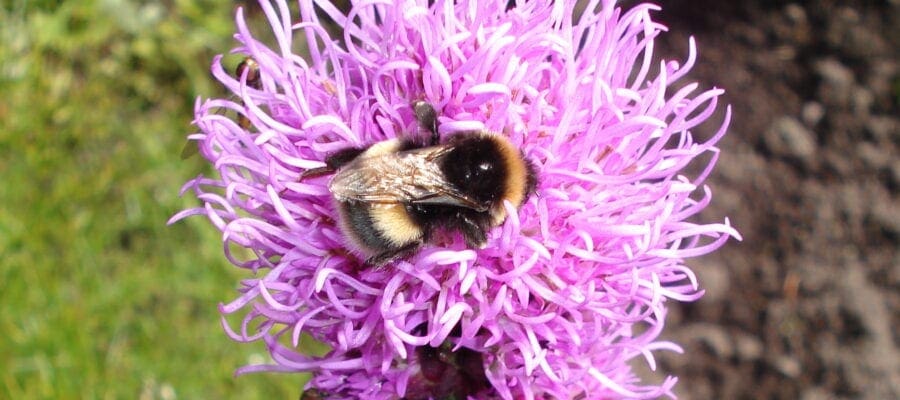A busy bee diving into some gayfeather.
New research has found that many of the plants sold in garden centres as ‘bee-friendly’ or ‘pollinator-friendly’ actually contain dangerous levels of pesticides. Research by Dr Dave Goulson of Sussex University tested 29 different ‘bee-friendly’ plants for eight commonly used insecticides and 16 fungicides. Only two plants did not contain any, while 23 plants contained more than one, including neonicotinoid pesticides at concentrations known to be dangerous to bees.
In 2014, Greenpeace published a report which found pesticides in 97% of 35 popular ornamental garden plants sourced from garden centres in 10 European (but not UK) countries. Goulson’s study is the first to provide data on purchases in the UK. It concludes, ‘With the current state of knowledge, we are not able to evaluate whether the net effect of planting ‘pollinator-friendly’ flowers contaminated with pesticides is likely to be positive or negative. But it is clear that levels of pesticides found in some plants may well be sufficient to do harm, and the purchaser currently has no way of knowing what residues are in the different plants on sale.’
One piece of good news is that B&Q has announced a ban on its growers treating any flowering plants with neonicotinoids. As of February 2018, its flowering plant range will be neonicotinoid-free. It is hoped that other retailers can now be persuaded to follow B&Q’s lead.





